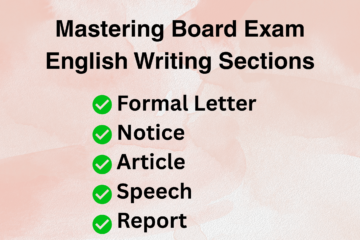Reading is an essential skill that helps children learn, explore new ideas, and develop creativity. However, some kids may find reading challenging or uninteresting. The good news is that reading can be made fun with engaging activities! In this blog, we will explore exciting ways to help children improve their reading skills while having fun.
Why is Reading Important?
Reading helps in many ways, including:
- Improving vocabulary – The more children read, the more words they learn.
- Enhancing comprehension – Reading helps children understand stories and information better.
- Boosting creativity – Books take kids to new worlds and expand their imagination.
- Building focus and concentration – Regular reading improves attention span.
- Developing communication skills – Reading enhances speaking and writing abilities.
Now, let’s look at some fun activities that can make reading enjoyable and effective!
1. Read Aloud Together
Reading aloud is a great way to make reading enjoyable. It helps children understand pronunciation, tone, and emotions in a story.
How to Do It:
- Read aloud to your child with excitement and different voices for characters.
- Encourage your child to read aloud to you or a sibling.
- Choose books with pictures to make the story more engaging.
2. Play Word Hunt Games
A word hunt makes reading interactive and helps kids recognize words quickly.
How to Play:
- Pick a book and ask your child to find a particular word on a page.
- Use flashcards with different words and let your child match them to words in a book.
- Create a scavenger hunt where kids find objects based on words they read.
3. Act Out the Story
Dramatizing a story makes reading fun and helps children remember details.
How to Do It:
- Choose a simple story and assign roles to family members.
- Use props or costumes to make it exciting.
- Let kids act out their favorite scenes and express emotions through reading.
4. Use Audiobooks and Story Apps
Technology can make reading more engaging for kids who prefer listening.
Benefits:
- Audiobooks help improve listening and comprehension skills.
- Story apps with interactive animations make reading exciting.
- Children can follow along with the text while listening to improve fluency.
5. Create a Reading Corner
A special reading space encourages children to read more.
How to Set It Up:
- Pick a quiet and comfortable spot.
- Add colorful bookshelves and a soft reading chair.
- Decorate the space with posters of favorite book characters.
6. Make a Reading Chart
Tracking progress motivates kids to read more.
How to Do It:
- Create a chart to track the number of books read each week.
- Reward children with stickers or small prizes for completing books.
- Set fun reading challenges, like reading a book in different voices.
7. Read Different Types of Books
Variety keeps reading interesting and expands knowledge.
Suggested Book Types:
- Picture books for young learners.
- Fairy tales and fables for imagination.
- Non-fiction books for facts and learning.
- Comics and graphic novels for visual readers.
8. Play Rhyming and Phonics Games
Rhyming and phonics improve pronunciation and reading fluency.
Fun Activities:
- Sing nursery rhymes and ask kids to find rhyming words.
- Play phonics games with flashcards and letter sounds.
- Use online phonics apps to make learning interactive.
9. Encourage Creative Writing
Writing helps reinforce reading skills and builds creativity.
How to Do It:
- Ask kids to write a short story about their favorite book.
- Create a journal where they can write daily experiences.
- Let them make their own picture books with drawings and words.
10. Visit Libraries and Bookstores
Exploring books outside the home increases interest in reading.
Benefits:
- Libraries offer a wide variety of books to choose from.
- Bookstores let kids pick their own books, making them more excited to read.
- Storytime events at libraries make reading a social and enjoyable activity.
11. Make Reading a Daily Habit
Consistency is key to improving reading skills.
Tips:
- Set a daily reading time, even if it’s just 10-15 minutes.
- Read before bedtime to make it a calming routine.
- Encourage kids to read road signs, menus, and labels in daily life.
Conclusion
Improving reading skills doesn’t have to be boring. By making reading fun through games, acting, audiobooks, and creative activities, children can develop a love for books and enhance their reading abilities naturally. Try these activities and watch your child become a confident reader!
“Today a reader, tomorrow a leader.” — Margaret Fuller




